Homeland Hospice Honors Veterans
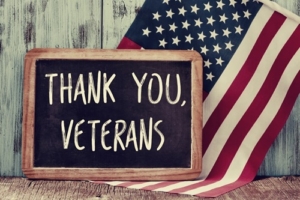 Last month, Homeland Hospice was awarded Partner Level Three status from the We Honor Veterans program – a program that was created by the National Hospice and Palliative Care Organization (NHPCO) in collaboration with the Department of Veterans Affairs (VA). Its objective is to increase access to and improve the quality of healthcare for all veterans. This includes from the moment they retire or are discharged through end of life.
Last month, Homeland Hospice was awarded Partner Level Three status from the We Honor Veterans program – a program that was created by the National Hospice and Palliative Care Organization (NHPCO) in collaboration with the Department of Veterans Affairs (VA). Its objective is to increase access to and improve the quality of healthcare for all veterans. This includes from the moment they retire or are discharged through end of life.
“Homeland Hospice has been involved in the program for about five years,” stated Leanne Porterfield, Coordinator of Volunteers for Homeland Hospice. “All agencies need to apply to the “We Honor Veterans” program to be involved. You first begin as a recruit, then progress through applications and development of programs to reach levels one, two, three and finally four. We are currently working on our Level Four status and our goal is to attain it within the next six months.”
The requirements to reach each level are different, but include community presentations, connections with a regional Veteran Community Partnership and education of all staff. The requirements are designed to strengthen the relationship between the Veterans and the VA and offer education about hospice care.
In the months of April through June, Homeland Hospice served 62 Veterans. Thirty, or nearly half, of those Veterans had served in World War II. This statistic is a little unique as many other hospices across the nation are seeing a decline in World War II Veterans receiving services, as the number of patients who served in more recent wars has increased.
The We Honor Veterans program’s model of care for Veterans is to support the philosophy of quality compassionate care at end of life, while adding the extra support that Veterans need. Veterans sometimes face death differently – they’ve seen active combat, were in active combat, witnessed the death of comrades. Many Veterans were taught to “hold in” their feelings about what they experienced or ignore what they went through or what they saw, as they ‘had to get up every morning and face it again’. And they returned from this military service ready to move on with their life, often putting those war memories aside. But at end of life, they may still have a need to share those memories and release some of the associated pain. The Homeland Hospice team is trained to serve Veterans with the supportive care they need and deserve. Sometimes, it’s encouraging them and listening to them share their stories. And always, it’s remembering to say ‘thank you for serving to protect our country’s freedoms.’
Homeland Hospice also provides Pinning Ceremonies for Veterans to offer a special tribute and recognition for their courageous efforts and their selfless involvement in the military. The ceremony, performed by Veteran volunteers and Hospice staff includes sharing a certificate and an American Flag, and giving them a pin to signify the branch of service in which they served. In the months of April through June, sixteen ceremonies were completed.
Homeland Hospice believes that every Veteran – those in our service as well as those we meet in our everyday lives, deserves a heartfelt thank you – it is the least we can to for all they have done for us. For more information about We Honor Veterans, please visit their website at www.WeHonorVeterans.org.

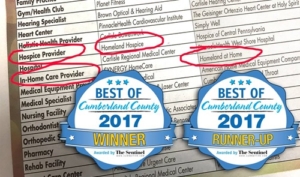 Thank you Cumberland County!
Thank you Cumberland County!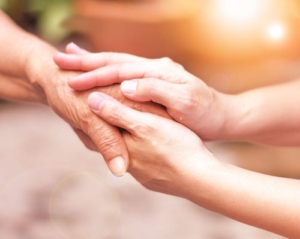 When faced with a life-threatening illness, making serious decisions about your care can be overwhelming.
When faced with a life-threatening illness, making serious decisions about your care can be overwhelming.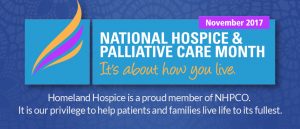
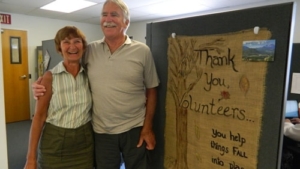 In 2012, Andy Lank’s parents died within eight months of each other. In the midst of caring for them and then grieving their deaths, Andy and his wife, Sherry, found consolation from the people of Homeland Hospice.
In 2012, Andy Lank’s parents died within eight months of each other. In the midst of caring for them and then grieving their deaths, Andy and his wife, Sherry, found consolation from the people of Homeland Hospice.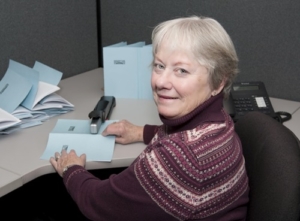 Hospice care in America was founded by volunteers and remains a core part of the strength, support, services and comfort that hospice continues to provide to patients and their loved ones. Indeed, Medicare regulations require that hospices have trained volunteers for the services they deliver to individuals and families.
Hospice care in America was founded by volunteers and remains a core part of the strength, support, services and comfort that hospice continues to provide to patients and their loved ones. Indeed, Medicare regulations require that hospices have trained volunteers for the services they deliver to individuals and families.
